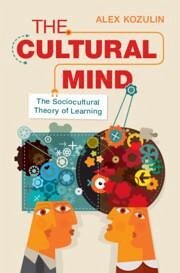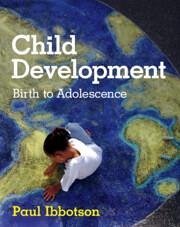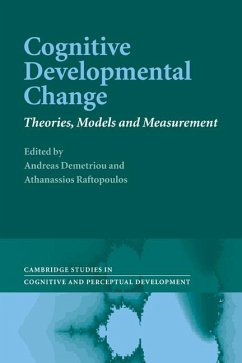
Developmental Psychology and Social Change
Versandkostenfrei!
Versandfertig in 1-2 Wochen
72,99 €
inkl. MwSt.
Weitere Ausgaben:

PAYBACK Punkte
36 °P sammeln!
Short description/annotationThe book's unique emphasis is on connections between research, history, and policy.Main descriptionWhat is the unique mission of developmental psychology(?)33; How has it evolved historically(?)33; What are its current challenges(?)33; The chapters in this collection present the view that research, history and policy are essential and interlocking components of a mature developmental psychology. Patterns of human development differ markedly across historical epochs, cultures and social circumstances. Major societal changes examined by contributing authors - the adve...
Short description/annotation
The book's unique emphasis is on connections between research, history, and policy.
Main description
What is the unique mission of developmental psychology(?)33; How has it evolved historically(?)33; What are its current challenges(?)33; The chapters in this collection present the view that research, history and policy are essential and interlocking components of a mature developmental psychology. Patterns of human development differ markedly across historical epochs, cultures and social circumstances. Major societal changes examined by contributing authors - the advent of universal compulsory schooling, the adoption of a one-child policy in China, US policy shifts in healthcare, welfare and childcare - present 'natural experiments' in social design. Authors challenge the idea of a clear distinction between basic and applied developmental research. In sharp contrast with the view that science is value-neutral, developmental psychologists have from the outset pursued the betterment of children and families through educational, childcare and health initiatives. An historical perspective reveals the beneficial, if sometimes contentious, interplay between empirical research and social programs and policies.
Table of contents:
Preface; Introduction: what kind of science is developmental psychology(?)33; Sheldon H. White and David B. Pillemer; Part I. The Developing Child: Global and Historical Perspectives: 1. The globalization of developmental psychology Charles M. Super; 2. A socio-historical perspective on autobiographical memory development Michelle D. Leichtman and Qi Wang; 3. Toward a better story of psychology: Sheldon White's contributions to the history of psychology, a personal perspective William McKinley Runyan; Part II. Designing Child and Family Policies: 4. The effects of welfare reform and poverty policies on children and families Aletha C. Huston; 5. The disconnect between research and policy on child care Deborah Phillips and Kathleen McCartney; 6. Child development and child care policy: modest impacts Ron Haskins; Part III. Designing Child Health Policies: 7. Developmental epidemiology: the role of developmental psychology for Public Health in the 21st century Stephen L. Buka; 8. Ignoring behavioral science: practices and perils Lewis P. Lipsitt; Part IV. Designing Effective Learning Environments for Children and Adolescents: 9. A cultural/historical view of schooling in human development Barbara Rogoff, Maricela Correa-Chavez and Marta Navichoc Cotuc; 10. The rise of the American Nursery School: laboratory for a science of child development Barbara Beatty; 11. Actualizing potentials: learning through psychology's recurrent crises Michael Cole and Jaan Valsiner; 12. The rise of a right-wing culture in German youth: the effects of social transformation, identity construction, and context Wolfgang Edelstein; 13. Learning potential assessment: where is the paradigm shift(?)33; Alex Kozulin; 14. Teaching as a natural cognitive ability: implications for classroom practice and teacher education Sidney Strauss.
The book's unique emphasis is on connections between research, history, and policy.
Main description
What is the unique mission of developmental psychology(?)33; How has it evolved historically(?)33; What are its current challenges(?)33; The chapters in this collection present the view that research, history and policy are essential and interlocking components of a mature developmental psychology. Patterns of human development differ markedly across historical epochs, cultures and social circumstances. Major societal changes examined by contributing authors - the advent of universal compulsory schooling, the adoption of a one-child policy in China, US policy shifts in healthcare, welfare and childcare - present 'natural experiments' in social design. Authors challenge the idea of a clear distinction between basic and applied developmental research. In sharp contrast with the view that science is value-neutral, developmental psychologists have from the outset pursued the betterment of children and families through educational, childcare and health initiatives. An historical perspective reveals the beneficial, if sometimes contentious, interplay between empirical research and social programs and policies.
Table of contents:
Preface; Introduction: what kind of science is developmental psychology(?)33; Sheldon H. White and David B. Pillemer; Part I. The Developing Child: Global and Historical Perspectives: 1. The globalization of developmental psychology Charles M. Super; 2. A socio-historical perspective on autobiographical memory development Michelle D. Leichtman and Qi Wang; 3. Toward a better story of psychology: Sheldon White's contributions to the history of psychology, a personal perspective William McKinley Runyan; Part II. Designing Child and Family Policies: 4. The effects of welfare reform and poverty policies on children and families Aletha C. Huston; 5. The disconnect between research and policy on child care Deborah Phillips and Kathleen McCartney; 6. Child development and child care policy: modest impacts Ron Haskins; Part III. Designing Child Health Policies: 7. Developmental epidemiology: the role of developmental psychology for Public Health in the 21st century Stephen L. Buka; 8. Ignoring behavioral science: practices and perils Lewis P. Lipsitt; Part IV. Designing Effective Learning Environments for Children and Adolescents: 9. A cultural/historical view of schooling in human development Barbara Rogoff, Maricela Correa-Chavez and Marta Navichoc Cotuc; 10. The rise of the American Nursery School: laboratory for a science of child development Barbara Beatty; 11. Actualizing potentials: learning through psychology's recurrent crises Michael Cole and Jaan Valsiner; 12. The rise of a right-wing culture in German youth: the effects of social transformation, identity construction, and context Wolfgang Edelstein; 13. Learning potential assessment: where is the paradigm shift(?)33; Alex Kozulin; 14. Teaching as a natural cognitive ability: implications for classroom practice and teacher education Sidney Strauss.














